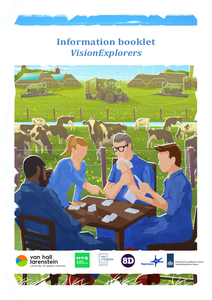In this report, the details of an investigation into the e ect of the low induction wind turbines on the Levelised Cost of Electricity (LCoE) in a 1GW o shore wind farm is outlined. The 10 MW INNWIND.EU conventional wind turbine and its low induction variant, the 10 MW AVATAR wind turbine, are considered in a variety of 10x10 layout configurations. The Annual Energy Production (AEP) and cost of electrical infrastructure were determined using two in-house ECN software tools, namely FarmFlow and EEFarm II. Combining this information with a generalised cost model, the LCoE from these layouts were determined. The optimum LCoE for the AVATAR wind farm was determined to be 92.15 e/MWh while for the INNWIND.EU wind farm it was 93.85 e/MWh. Although the low induction wind farm o ered a marginally lower LCoE, it should not be considered as definitive due to simple nature of the cost model used. The results do indicate that the AVATAR wind farms require less space to achieve this similar cost performace, with a higher optimal wind farm power density (WFPD) of 3.7 MW/km2 compared to 3 MW/km2 for the INNWIND.EU based wind farm.
DOCUMENT

This guide is a useful tool for the VisionExplorers game. The guide explains different farm visions, success factors and measures. The guide also helps you to find measures that fit well with your company vision. In short, this guide provides additional explanation during and after playing the game.
DOCUMENT

This guide is a useful tool for the VisionExplorers game. The guide explains different farm visions, success factors and measures. The guide also helps you to find measures that fit well with your company vision. In short, this guide provides additional explanation during and after playing the game.
DOCUMENT

More and more people worldwide live in urban areas, and these areas face many problems, of which a sustainable food provision is one. In this paper we aim to show that a transition towards more sustainable, regionally organized food systems strongly contributes to green, livable cities. The article describes a case study in the Dutch region of Arnhem–Nijmegen. Partners of a network on sustainable food in this region were interviewed on how they expect the food system to develop, and in design studies possible futures are explored. Both the interviews and the designs give support to the idea that indeed sustainable food systems can be developed to contribute to green livable cities. They show that the quality and meaning of existing green areas can be raised; new areas can be added to a public green system, and connections with green surroundings are enforced. They also show that inhabitants or consumers can be stimulated to become so called food citizens, highlighting that the relation of food systems and livable cities is a very close one.
DOCUMENT

The question of how to design climate-resilient landscapes plays a major role in the European projects in which the green university has been involved, such as Future Cities and F:ACTS!. These are projects in which various European organizations, government authorities and universities have joined forces to find an answer to climate-related issues. Van Hall Larenstein also collaborates with Almere, a relatively new Dutch municipality that is changing rapidly and that prioritizes climate resilience in its development. Over the years there has been a clear development in climate-adaptive planning, both in education and in practice.
DOCUMENT

This document summarizes the main findings of the ERASMUS+ Strategic Partnership ‘Community Learning for Local Change (CLLC)’. The CLLC project has been running from September 2018 to August 2021. The project was a cooperation of four universities, three NGOs and various local community partners. Our consortium presents new approach to promote creativity, entrepreneurial thinking and skills for designing innovation in close cooperation with the communities in which our universities are embedded.
DOCUMENT

Financial constraints and risk taking are two well-established determinants of firm performance, however, no research analyzes how these variables are connected in the context of a high risk environment. Using data from microfinance clients in Tanzania, we derive a novel financial constraints measure and incorporate a psychometric risk taking scale. Results confirm the importance of access to finance and risk attitudes for business development. Also, we provide preliminary evidence for an interaction between financial constraints and risk taking. Financial constraints “throw sand in the wheels” and protect risk taking entrepreneurs from the negative impact of risk taking on microenterprise performance.
DOCUMENT
